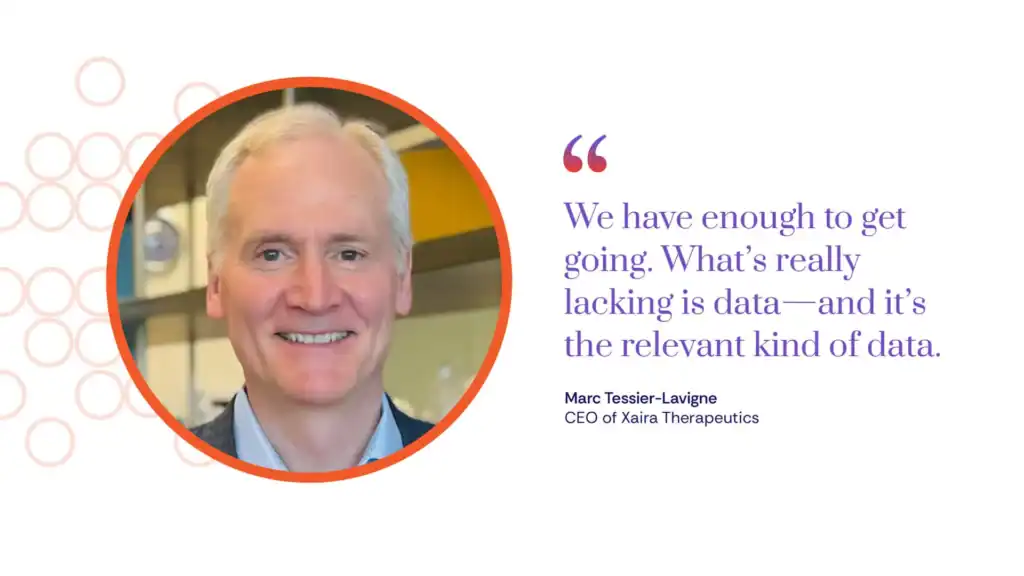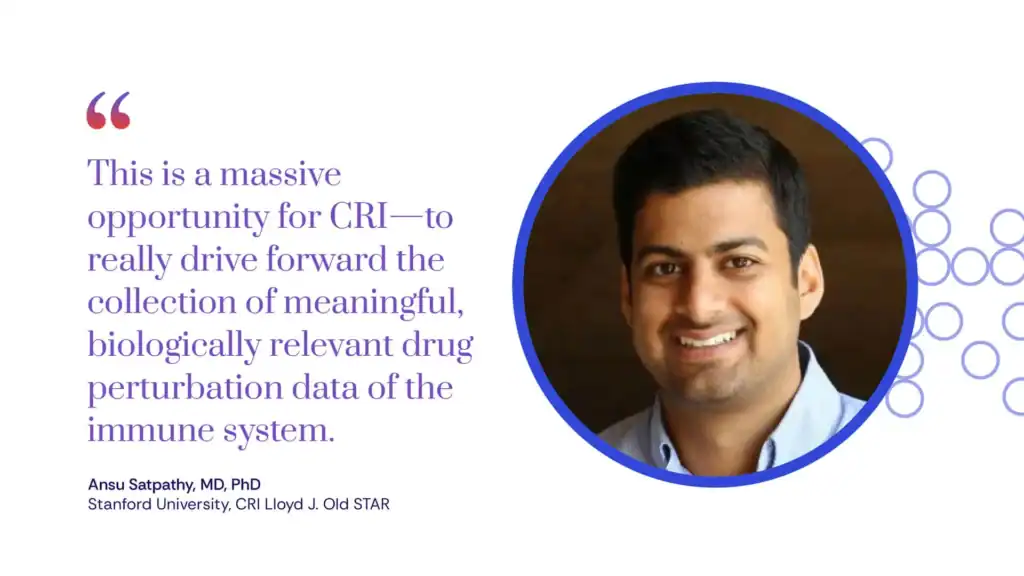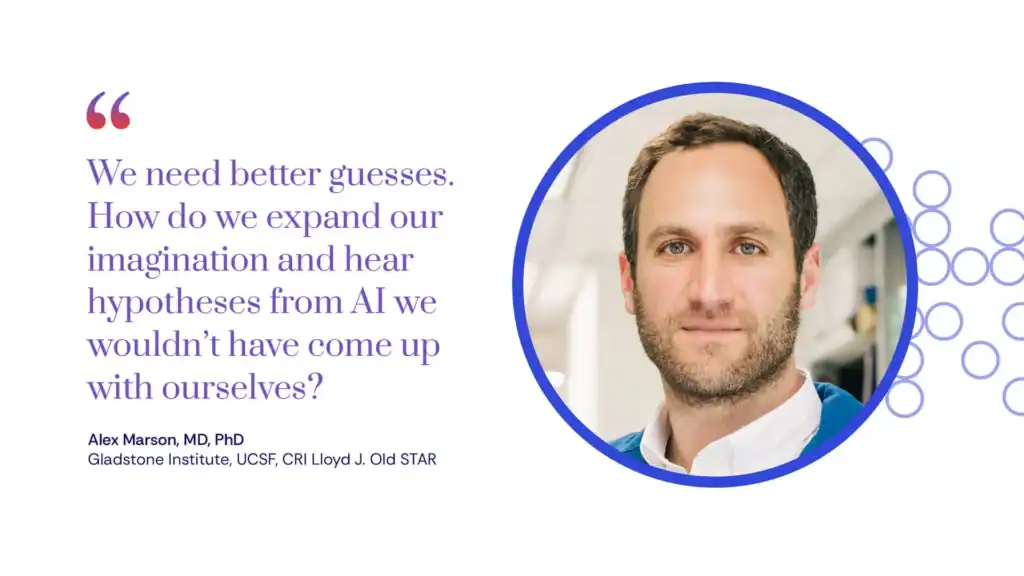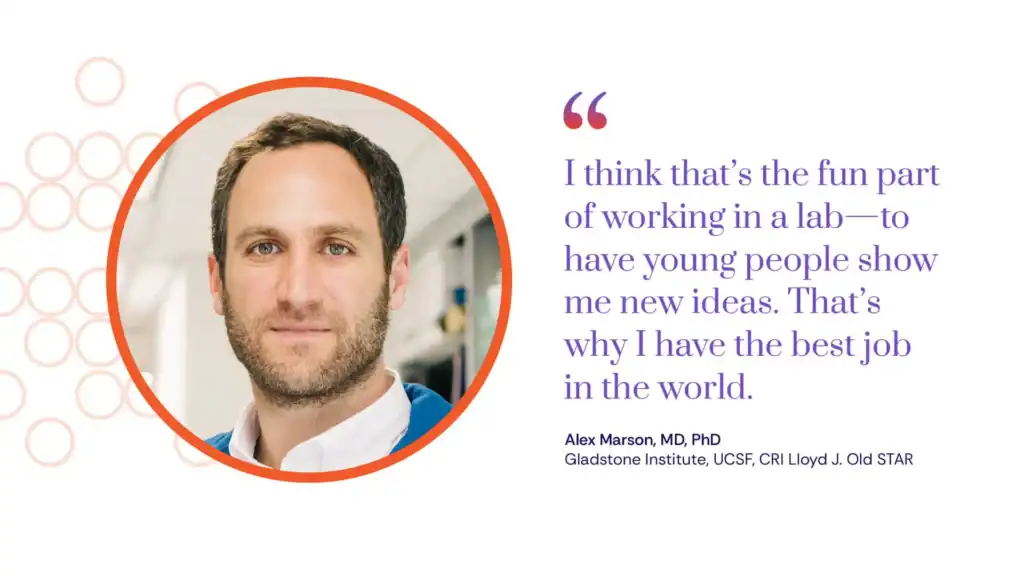How will AI transform the future of cancer treatment?
That was the central question guiding a recent Cancer Research Institute panel I had the privilege to host and moderate. We brought together leaders in biotech innovation and academic research who are working at the intersection of immunotherapy and artificial intelligence:
- Marc Tessier-Lavigne, PhD, CEO, Xaira Therapeutics
- Alex Marson, MD, PhD, Gladstone Institute, UCSF, CRI Lloyd J. Old STAR
- Ansu Satpathy, MD, PhD, Stanford University, CRI Lloyd J. Old STAR
We uncovered five key insights that demonstrate how AI and the scientists behind it are shaping the next wave of progress in cancer immunotherapy.
1. AI is poised to reshape every step of cancer drug development
From identifying better drug targets to stratifying the right patients, the panelists agreed: AI can accelerate, de-risk, and expand what’s possible across the entire pipeline.

New tools like protein design engines (e.g., David Baker’s work), gene editing at massive scale, and multi-modal datasets are aligning to make AI more powerful and practical than ever.
2. The future hinges on the right kind of data—not just more of it
The panel emphasized that while models have improved, the real barrier is high-quality, multi-dimensional, causal data.

The difference between descriptive and causal data is critical: most existing biological datasets catalog differences between cell states, but don’t tell us how to get from one to another. That’s where there is potential for AI, paired with intentional experimental design, to unlock new pathways.
3. Immunotherapy is evolving and AI can help unlock its full potential
Checkpoint inhibitors and cell therapies have already transformed cancer care, but challenges remain in understanding why certain treatments work for some patients and not others.

Rather than viewing recent industry pullbacks as a sign of failure, panelists saw this as a pivotal moment to double down on mechanistic understanding. With tools like CRISPR, single-cell sequencing, and AI, researchers can start to map the immune system’s behavior with unprecedented resolution.
4. Scientific creativity and collaboration are critical
Panelists emphasized that AI is not a shortcut—it’s a force multiplier for scientific imagination. The goal isn’t to replace scientists, but to empower them to explore more possibilities, faster.

Progress will be fueled by interdisciplinary teams, forward-thinking funders, and new models of data sharing. That’s where academic labs, startups, and mission-driven nonprofits like CRI can play a critical role in fostering collaboration and innovation.
5. A new generation of AI-native researchers is already leading the way
The most promising AI work in cancer immunotherapy isn’t just about algorithms—it’s about the people using new tools and approaches to fuel discovery. Panelists noted that next generation of scientists are AI-native, interdisciplinary, and comfortable challenging assumptions.

By removing traditional barriers and giving emerging talent room to lead, institutions can accelerate innovation and move discoveries from bench to bedside faster than ever.
Watch the Full Conversation
From emerging immunotherapies to new AI-powered discovery models, this panel captured a rare behind-the-scenes look at where cancer research is headed next, and the transformative role that AI will play in the process.
